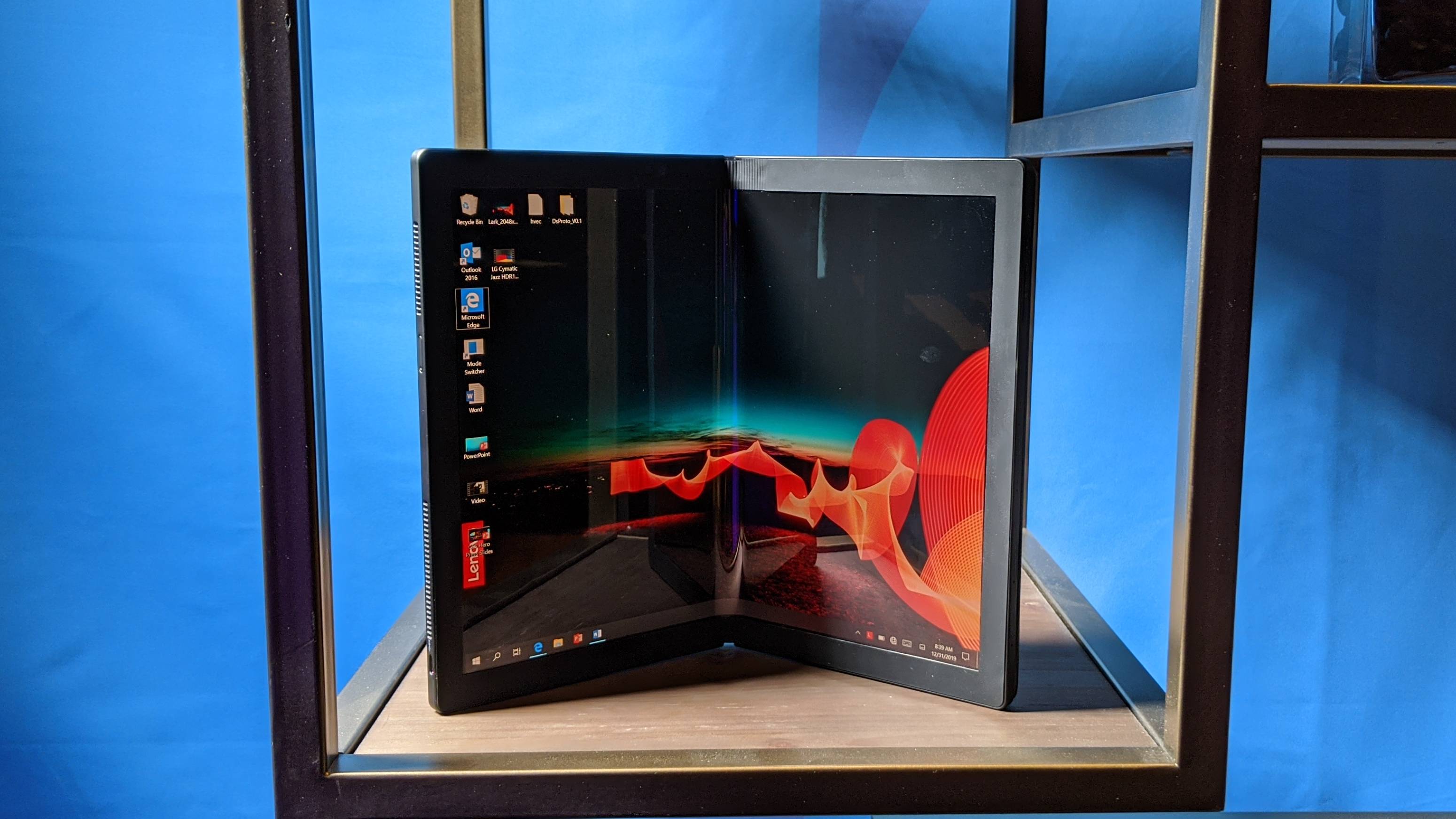Intel Lakefield CPUs arrive, ushering in the next generation of laptops
These tiny '3D' chips will power foldables and dual-screen devices

Sign up to receive The Snapshot, a free special dispatch from Laptop Mag, in your inbox.
You are now subscribed
Your newsletter sign-up was successful
Intel just launched its Lakefield CPUs, the first to use Foveros 3D stacking and feature a hybrid architecture. Announced last year, these CPUs are designed for low-power devices in ultra-lightweight and flexible new form factors, like foldable and dual-screen devices.
We already knew Samsung would use Lakefield CPUs for its razor-thin Galaxy Book S. Intel has now confirmed that the chips will also arrive on the Lenovo ThinkPad X1 Fold, the first foldable PC expected to arrive later this year running Windows 10 Pro.
- Best laptops 2020
- Laptop Processor Comparison: Which CPU Is Right For You?
- Lenovo ThinkPad X1 Fold hands-on review
"Intel Core processors with Intel Hybrid Technology are the touchstone of Intel’s vision for advancing the PC industry by taking an experience-based approach to designing silicon with a unique combination of architectures and IPs," said Chris Walker, Intel corporate vice president and general manager of Mobile Client Platforms.
Enabling smaller, more flexible devices
These new Intel Core CPUs with Hybrid technology were designed to further reduce the size of Windows 10 devices. To that end, Intel says Lakefield chips deliver full Windows 10 app compatibility in products that are 56% smaller due to its 47% smaller board size.
The chipmaker promises long battery life and notes that these 7W Intel Core CPUs are the first with 2.5mW standby power, a 91% reduction compared with Y-series processors. It accomplishes this feat by using a new stacking technology. You can think of these chips as layer cakes compared with previous chips, which are more like pancakes. It lets Intel "mix and match" different components without increasing the footprint of the chip (Intel claims it's the size of a dime).
More specifically, Intel is stacking two logic dies and two layers of DRAM in three dimensions so there is no need for external memory.
We can expect to see upcoming laptops with new form factors use the hybrid processors because the chips use dual internal display pipes for greater flexibility.
Sign up to receive The Snapshot, a free special dispatch from Laptop Mag, in your inbox.
Intel CPU with Hybrid tech (Lakefield) performance and specs
The Intel Core i5 (i5-L16G7) and Core i3 (i3-L13G4) CPUs with Hybrid technology use a 10-nanometer chip based on the Sunny Cover architecture. These CPUs, unlike their ARM competitors, are compatible with both 32-bit and 64-bit programs, so you can run every Windows application on them.
At least, you can try to. These are low-power chips, so don't expect the performance provided by more powerful U-series and H-series CPUs. Digging into the numbers, the Core i5-L16G7 has a 5 core/5 thread setup and a maximum multi-core frequency of 1.8Ghz (single cores go up to 3Ghz). The less powerful Core i3-L13G4 has the same core/thread setup but a lower 0.8Ghz max frequency (2.8Ghz for one core).
Intel compares the new chips to its Y-series CPUs, those used in the MacBook Air and other ultrathin laptops. Compared with an Intel Core i7-8500Y CPU, the new Lakefield Intel Core i5-L16G7 chip gets 12% faster performance and a 24% boost for each SoC. You can also expect a 1.7x increase in graphics performance compared with the Intel UHD graphics in the Y-series processor.
Intel also says the Core i5-L16G7 can convert a video to your preferred format 54% faster than the Core i7-8500Y CPU. Unfortunately, the company didn't make any comparisons to the latest 10th Gen Y-series chips or U-series processors found in most lightweight laptops (like the Dell XPS 13).
In terms of connectivity, the Lakefield CPUs will support Thunderbolt 3 for connecting to four 4K monitors and Wi-Fi 6 for faster internet speeds.
Lakefield chips coming to laptops soon
Intel highlighted two upcoming devices that will use the Lakefield CPUs: the Samsung Galaxy Book S and the Lenovo ThinkPad X1 Fold.
These are two exciting devices, but the latter is especially interesting considering it is the first foldable PC. When we went hands-on with the ThinkPad X1 Fold, the folks at Lenovo told us that they envision it to be a replacement to your laptop and tablet, not a compliment. With that and the $2,499 price in mind, these Lakefield chips will need to deliver fast performance and long battery life.
The Galaxy Book S will be available in select markets later this month while the ThinkPad X1 Fold is expected to arrive before the end of 2020. Of course, we will only know how these innovative new chips perform once we get them in our labs, so check back in with us in a few months.
Phillip Tracy is the assistant managing editor at Laptop Mag where he reviews laptops, phones and other gadgets while covering the latest industry news. After graduating with a journalism degree from the University of Texas at Austin, Phillip became a tech reporter at the Daily Dot. There, he wrote reviews for a range of gadgets and covered everything from social media trends to cybersecurity. Prior to that, he wrote for RCR Wireless News covering 5G and IoT. When he's not tinkering with devices, you can find Phillip playing video games, reading, traveling or watching soccer.

